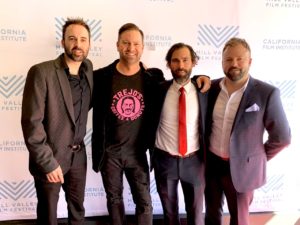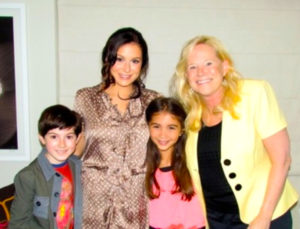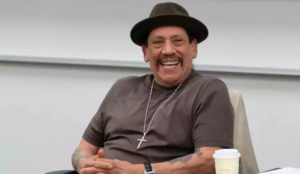
Jhod Cardinal, a producer of “Inmate #1: The Rise of Danny Trejo,” spoke with me about the making of Danny Trejo’s bio-doc film. As President and Founder of Upstream Flix, he agreed to produce and find a distributor for the film, which became Universal. His bio-doc successes include “Ice Guardians” and “Making Coco.”
Can you tell me about the film’s title?

Most people know Danny Trejo from the Hollywood side, this gentleman has actually lived multiple lives and we often joke that it would take us, you know, it would take me four or five lives just to do what he’s done in one. I think that the word ‘rise’ is quite important. He always seemed to start kind of at the bottom. He never gave up his passion regardless of what he was doing. It’s also a positive title.
Can you give me your thoughts on the “Machete” movie of 2010?
I think what’s incredible about the whole aspect of the movie is the clear relationship that Robert Rodriguez [director] and Danny had and how much tongue in cheek it was at the beginning. [referring to the fake trailer] And then, Robert realizing, hey, this is possible. A Mexican American in that leading rule is such a huge bill. It is nice to see all the other actors that stepped up because we all know what the cast turned out to be.
Can you talk about Danny Trejo’s ability to appeal to such a wide audience, including adults and kids? I’ve actually interviewed all three of the kids from the movies.

![]()
He’s a very open and honest person. He is a very nice guy who just looks mean, he was raised to be mean, but that’s not who he naturally was. His infectious personality, the joy he brings, his thankfulness. He believes that anything good that’s happened to him has been a result of helping others. He believes that and that’s been true for his life so that he can cross over.

We all know a movie is a movie. It’s not real if you meet him, he’s not a mean guy in real life. That personality allows him to do something like “Spy Kids” because it’s just useful energy. I find it really funny because I have six-year-old twins and have a poster of “Inmate #1” in our living room. And they know that is Uncle Machete from “Spy Kids.” (we are both laughing)
Can you talk about Danny’s heart-wrenching recollection of prison life? I don’t think I’ve ever seen a more realistic depiction. I grew up in Southern California, and I knew of those prisons, any TV news about them was usually very frightening to view as a child.
He’s so raw in his storytelling it was like, it happened yesterday. I think one thing is important to say is that Danny wanted to make sure we weren’t glorifying his prison experience. It is a horrible place to be. He thought he should go to prison because all of his friends and family around him did that. So we tried to make it feel real and intimidating because he did not want us to put it on any type of higher-level that it was a cool thing to do. That’s very important to know because Danny still speaks in prisons to inmates. Any city he goes to when he’s filming, he asks his manager to find a prison.
Is there anything else you’d like to say about the film?

I’m really proud of the filmmakers, the editors, the director, Brett Harvey, because there was an easy route to turn this into like a celebrity, type documentary that just profiled all the different famous people.
Adam Scorgie and Brett Harvey and his crew did a great job; it was exciting when the film footage would arrive. I just loved how everyone felt like they could approach Danny; he was never standoffish—seeing him driving around in his car in his neighborhood. I think he is quite similar to who he’s always has been and to be in that same neighborhood, those same friends, those same ties and, to be able to feel his redemption.
When we screened, Mill Valley Film Festival just outside of San Francisco, it was so nice to see how people approached him with a lot of respect. That was great because the industry has a lot of big egos, and telling someone’s incredible story who doesn’t have that ego made me feel good about what I was doing because sometimes you fall in that Hollywood trap. We try really hard to tell real documentary stories and to tell one about a celebrity. You’re also trying not to make it so glamorous that everyone should be a celebrity, but it was well worth this story. And I think a lot of people are going appreciate seeing where he came from and where he is now.

Sarah Knight Adamson© June 10, 2020
